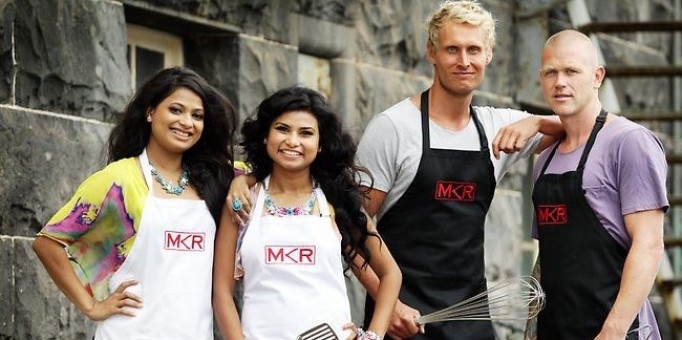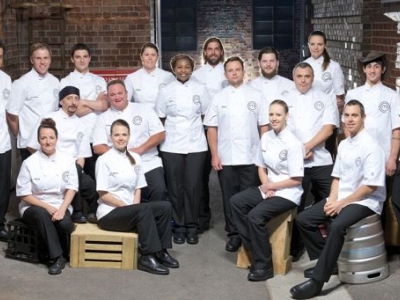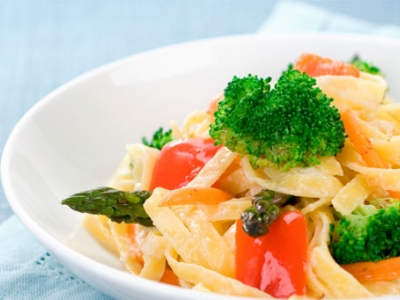
My Kitchen Rules: TV Review
The food might not be as impressive, but this show offers fascinating insights into each contestant's character.
Network Ten’s Masterchef Professionals may have been first to plate up wonder recipes for Australian audiences but Seven’s My Kitchen Rules looks likely to serve more of the secret ingredient we savour the most: personal insight.
The fourth season of MKR returns with very little change to its format. 12 couples representing six states turn their homes into pop-up restaurants for a night, serving celebrity chefs Manu Feildel and Pete Evans, plus fellow contestants, their best three-course meal. The top-scoring teams then head off on a range of cooking contests that culminate in a cook-off in the MKR kitchen. The fine-tuning in 2013 includes ‘shock’ drop-ins from other celebrities, and a blind taste-testing to discover the winner, where the judges won’t know whose dish they’re devouring. This last addition must have been hard to swallow for the poor old ABC because it’s made that one trick the central plank of its upcoming series The Taste.
Masterchef vs My Kitchen Rules
The key difference between Masterchef and MKR is the way Seven emphasises personality over performance. MKR’s food is unlikely to eclipse the Masterchef menu, given it’s created in domestic kitchens by people who don’t dream about cooking every day of their lives. But through it, we’re welcomed into that most personal of rooms, the family kitchen. In the opening episode we saw happily married housewife Kerrie turn her anxiety over wallaby fillets into strips torn off her husband’s back: “I’m blaming you Garrie because … well, who else am I going to blame??” Of course, every couple will handle stress differently each week, but how successfully they do so tends to depend on their worldview.
For example, Tasmanian father and son team Mick and Matt know they’re in a competition, but they’re under no illusions about the abilities of the other teams involved. So when they make it to the kitchen, their ‘salt of the earth’ humility makes it much easier for them to cope with mishaps – and more generous when judging the other teams. By comparison, teams like Queenslanders Jack and Ellie are supremely confident, regularly offering comments on other contestant's dishes like, “It’s as bland as their personality.” It might make for good TV, but they ultimately raise the temperature on themselves when they finally take their turn. It’s worth noting that judges Manu and Pete tend to give the highest scores probably because, for all the talk of ‘perfection’, years of reality have taught them to measure dishes against what’s actually possible.
Watching MKR may teach you the recipe for an abalone patty or a bird’s nest pasta, but you can also learn a bit about what makes a real champion. Reality style programs regularly demonstrate that you can win a game and still emerge a loser. That’s because we instinctively judge people not just on their performance but their character as a whole. When we do so, we’re actually walking in the footsteps of Jesus. He told his disciples that it was very possible that someone could win the whole world and actually end up losing their very self, their soul. In fact, that is how God is going to judge us in the end, by looking on our hearts. Of course on that basis we’re all burnt chops and collapsed soufflés. Thankfully if we take up His offer, it will be Jesus’ menu that’s on offer and not our own.
Watching My Kitchen Rules with your kids
MKR is an easy program to watch with the family, and kids are great for offering unsalted opinions of the characters on offer. Try asking them:
- Who are the best cooks – and who do you like the most?
- What are people going to remember most about characters like Jack and Ellie, their entrées or their attitudes?
- If we can see their characters in their words, how much more do you think God can see?
For more articles from Growing Faith, subscribe to our monthly e-newsletter.
To hear about the latest books and resources from Youthworks Media, subscribe here.







